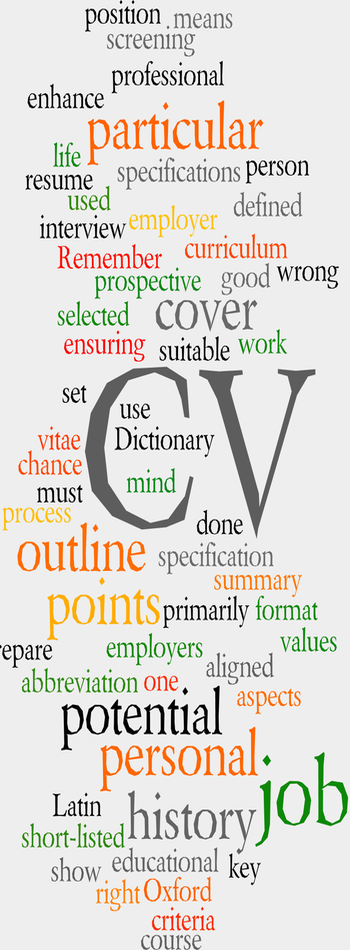
Preparing your CV
What is a CV?
CV is the abbreviation for curriculum vitae. This is Latin for ‘the course of one’s life’, and is defined in the Oxford Dictionary as "an outline of the person professional and personal history". Some employers use a CV primarily as a screening out process. Your CV must be aligned with the job specification and criteria; doing so will enhance your potential of being selected for an interview.
How you set out your CV depends on you - there is no right or wrong way to prepare your CV, but there are some key points to keep in mind.
Why prepare a CV?
- A resume or CV is a written summary of your personal, educational and work history.
- It should be used to show a potential employer how suitable you are for a particular job.
- It is used to Market yourself and be the means for ensuring you are short-listed for an interview.
- It should outline what you have done and what you are good at and your values.
- Remember there is no one way to format your CV.
Your CV should be specific to the particular job your are applying for and cover the relevant aspects of the prospective position.
CV TipsWhat makes a good CV? |
CV Formats and ExamplesClick here to see different CV formats and some CV examples. |
Cover LetterWhat is a Letter of Application and why should you have one? |
Personal StatementThis is an optional section of your CV. The idea of a Personal Statement is to write two or three sentences about you (to follow your Personal Details section) that summaries and highlight strengths and skills. Click here for some examples of Personal Statements. |
Personal QualitiesClick here to see a list of words that you could use in your CV or Letter of Application to describe you and your skills. |
Linkshttp://www.opencolleges.edu.au/careers/resumes/how-to-write-a-resume https://novoresume.com/career-blog/most-important-skills-to-put-on-your-resume https://novoresume.com/career-blog/how-to-write-a-cover-letter-guide |
How to write a Resume Best Skills to put on your Resume How to write a Cover Letter Choosing the Best Resume Format |
